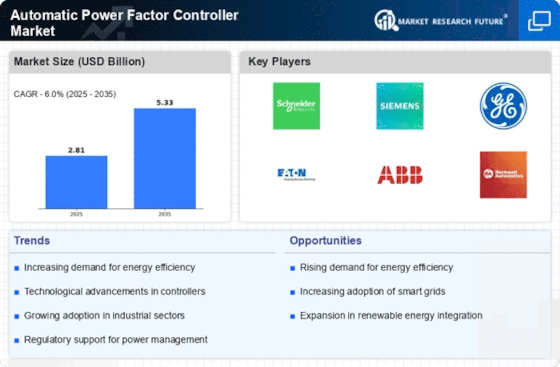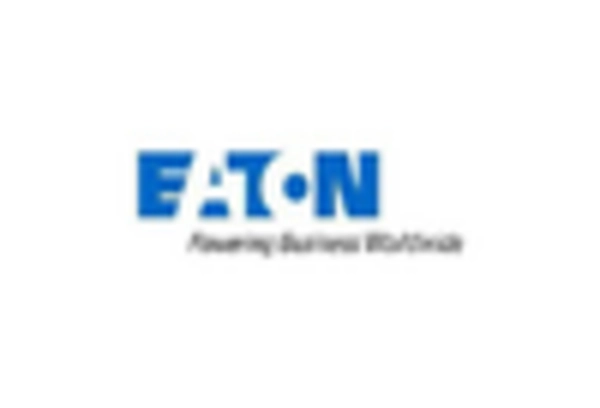Market Trends
Key Emerging Trends in the Automatic Power Factor Controller Market
With respect to encompassing some fundamental trends within, the Automatic Power Factor Controller (APFC) Market is undergoing major changes due to stringent requirements for efficient power management, energy preservation and abidance by environmental standards. Advances in prominences are the benefits of power factor optimization under industrial and commercial sectors. APFC systems are considered quite important in electrical installations as they allow for proper management of the power factor currently making them crucial elements for businesses seeking to enhance their power quality. It is especially important for such trends since the industries try to advance their energy-efficiency, decrease their electric cost and reduce wastage.
Anti-automatic power factor controller is an important consideration in the Automatic Power Factor Controller Market. As the need for sustainable practices continues to grow, industries deploy APFC systems which enable efficient power factor parameters and prevent unnecessary reactive loads hence reducing consumption of the same. The performances of APFC systems are based on the power factor correction capacitor adjustment according to current real-time load conditions. Not only does this improve the overall performance of electrical machines but more energy is also saved – meaning there are fewer emissions from their operation and operational cost savings.
Additionally, the market has been on a trend towards intelligent and networked APFC solutions This shift also needs an improved capacity for handling raised numbers of application tasks at increased power density levels. Together with the adoption of the main principles of Industry 4.0 and digitalization, APFC border control systems are provided with automation capabilities that allow them to be monitoring remotely. Through the active power factor correction controllers, it is now possible to conduct online measurement thanks to these smarter APFC controllers’ capabilities in providing real-time monitoring of power factor condition, electrical parameters, and overall system performance. Being based upon the integration of IoT technologies, preventative maintenance, early localization of technical faults as well as higher overall reliability are enabled.
In convergence with the overall development towards intelligent and networked power management systems, this trend is also a part of it. They also noted another significant trend in the Automatic Power Factor Controller Market which is the widespread use of hybrid APFC systems. Hybrid controllers rely on the advantages of the capacitor-based power factor correction and pair them with state-of-the-art thyristor switching. This hyperproduction models the AC voltage thoroughly, and its prediction errors are below PFC accuracy bounds. Hybrid APFC systems are available for industries that have varying loads, like manufacturing plants and facilities which use equipment with different levels of usage, as these are beneficial in attaining the satisfactory level of power factor.

















Leave a Comment